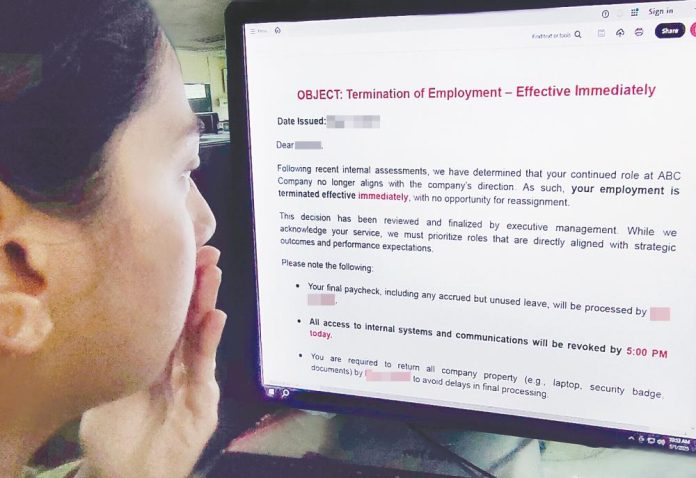PETALING JAYA: The practice of “silent firing” is drawing attention on social media as questions arise over whether it is legally permissible or could be considered constructive dismissal under Malaysian employment law.
Growing concerns over workplace fairness and job security have fuelled the debate.
Universiti Malaysia Kelantan’s professor of human resource management and industrial relations Prof Dr Balakrishnan Parasuraman has warned that silent firing – where employees are systematically pushed out through isolation, lack of opportunities or deliberate neglect – may amount to constructive dismissal under Malaysian law.
“Depending on the circumstances, this can indeed fall under constructive dismissal. Constructive dismissal means the employee ends the contract themselves due to unfair treatment.
“They feel forced to resign because the working environment becomes intolerable. While not common, it does happen, especially in SMEs or companies lacking proper human resource structures,” he said.
In contrast, he noted that larger corporations typically offer voluntary separation schemes or mutual separation schemes as legal and fair exit routes.
Employees who believe they are victims of constructive dismissal can bring their case to the Labour Department.
If conciliation fails, the matter may proceed to the industrial court.
“It’s important for employees to understand that they have legal options. They can seek advice and, if necessary, take the matter to arbitration.”
Malaysia’s legal framework, particularly the Employment Act 1955 and the Industrial Relations Act, provides protection regardless of age, race, gender or religion.
An amendment to the Employment Act in 2022 introduced an anti-discrimination clause, further strengthening protections across Peninsular Malaysia, Sabah and Sarawak.
Although silent firing is not explicitly defined in legislation, any act that causes an employee to feel sidelined or unfairly treated without due process could constitute a breach of the law.
“No employee should be demoted, dismissed or pressured to resign without following proper procedures. That includes conducting domestic inquiries, giving sufficient notice and maintaining documented performance appraisals.”
Balakrishnan said performance issues are often cited in such cases but these must be addressed fairly.
“Yes, employees might underperform due to health or personal reasons, especially as they age. But that doesn’t justify pushing them out without explanation or support.
“If performance is a concern it must be evaluated fairly, with proper documentation and opportunities for improvement.”
Drawing from his comparative research, he pointed to workplace models in Japan where some companies operate seven days a week – five days with younger staff and two days with older workers.
“This balance keeps all generations engaged and helps reduce age discrimination. We need similar inclusive strategies here.”
He also urged the government to consider raising the retirement age to 65 and introducing policies that support the reintegration of older workers, especially those from low-income backgrounds.
“It’s not just about economic survival, it’s about dignity, contribution and national progress.”
On the recent launch of a one-stop centre at the Human Resources Ministry in Putrajaya, Balakrishnan praised the move as a step in the right direction.
“This is a good initiative. Employees must know their rights and the government must actively protect them, especially those vulnerable to silent dismissals.”
He called for tripartite cooperation between employers, trade unions and the government.
“We must prioritise employee welfare, and make Malaysia a progressive and happy place to work.”
Meanwhile, a Malaysian employee who wished to remain anonymous shared that after breaking his ankle and becoming unable to perform certain tasks, his hours were gradually reduced until he was no longer scheduled at all.
“It felt like I was being pushed out,” he said.
“When I gave my two-week notice, my name was immediately removed from the roster. I was already leaving, but the way they handled it was disheartening.”
Another employee said he was excluded from key virtual meetings while working remotely and later reprimanded for being “late” to sessions he was never invited to.
“My boss kept hinting I should come into the office, even though he knew about my health condition. I had to rely on others for support.”
He noted that after his manager was reassigned, the situation improved.








